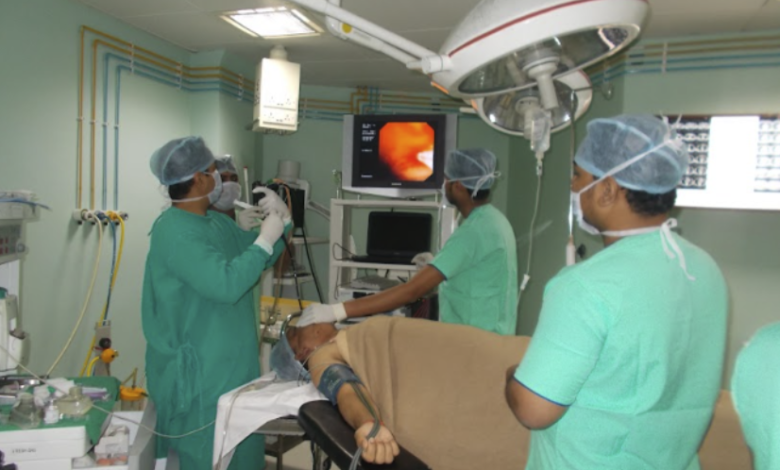When to Visit a Cardiologist in Ranchi: Heart Health Warning Signs

Heart troubles don’t come with sirens blaring. Most of the time, they creep up quietly and hit you suddenly. You might feel a bit off for weeks before realising something’s wrong. That chest tightness after climbing stairs? Could be nothing. Could be everything.
The thing about finding a cardiologist in Ranchi is that people leave it too late. They convince themselves it’s just stress from work, or maybe they’re getting older. But sometimes your body’s trying to tell you something important, and frankly, it’s worth listening to.
Your Heart Speaks in Whispers
There’s this misconception that heart problems announce themselves dramatically. Reality is messier than that. Your heart might signal trouble through breathlessness when you’re going about your everyday business. Walking to the shops shouldn’t leave you gasping, but many people brush this off as an aberration.
Chest pain isn’t always the crushing sensation you see in films. Sometimes it feels like someone’s sitting on your chest. Other times, it’s a burning feeling that spreads to your arm or jaw. Women particularly get different symptoms – they might feel sick, dizzy, or just completely drained instead of chest pain.
The tricky bit is that these symptoms come and go. You feel rough for a day, then fine for a week. It’s easy to forget about it until it happens again.
When Being Tired Becomes Something More
Everyone’s knackered these days. Between work deadlines, family demands, and trying to have some semblance of a social life, exhaustion feels normal. But there’s ordinary tiredness, and then there’s heart-related fatigue.
Do you know that feeling when you’ve had a properly busy day and you’re done? That’s normal. What’s not normal is when simple activities leave you completely wiped out.
I’ve heard people say they used to love gardening but now can’t manage more than ten minutes without needing a sit-down. Or they avoid taking the stairs because it leaves them breathless. That’s not just being unfit – though it might seem like it.
The problem is we’re pretty good at making excuses for ourselves. “I’m just getting older.” “Haven’t been to the gym in ages.” “Too much stress at work.” All perfectly reasonable explanations, except when they’re not.
The Elephant in the Room
Let’s talk about what really stops people seeking help – fear. Heart disease is terrifying. The thought of having a heart attack, needing surgery, or worse, leaving your family… It’s enough to keep anyone awake at night.
Some people reckon that if they ignore the symptoms, they’ll go away. Others worry about medical bills or taking time off work. There’s also that nagging voice that says, “What if they find something serious?”
But here’s the thing – burying your head in the sand doesn’t change what’s happening in your chest. Early treatment prevents serious complications more often than you’d think.
When You Need to Drop Everything and Get Help
Some symptoms can’t wait for a convenient appointment time. Severe chest pain, especially if you’re sweating, feeling sick, or struggling to breathe, needs immediate attention. Don’t be British about it and try to tough it out.
Look out for these warning signs:
- Chest pain that won’t shift after a few minutes
- Pain that spreads to your arms, neck, or jaw
- Sudden breathlessness that’s really bad
- Feeling like you might faint
- Heart racing with other symptoms
Most people get palpitations sometimes. Your heart skips a beat when you’re nervous or excited – that’s normal. But when your heart’s doing somersaults regularly for no apparent reason, something might be up. An electrocardiogram can spot rhythm problems that aren’t obvious otherwise.
The Sneaky Signs
Heart problems sometimes develop so slowly that you don’t notice them. Your ankles might start swelling. Shoes feel tight by evening. Your wedding ring gets stuck.
Rapid weight gain, especially with swelling, might mean your heart’s struggling to pump correctly. Your body holds onto fluid when things aren’t working as they should.
Sleep troubles can also point to heart issues. Waking up gasping or needing three pillows to breathe comfortably isn’t normal. Sleep apnoea increases heart disease risk too, though that’s another whole conversation.
Your Family Tree Matters
Genetics aren’t destiny, but it’s certainly influential. If your mum, dad, or siblings had heart problems, you’re more likely to develop them too. This family connection makes keeping an eye on things even more critical.
High blood pressure, diabetes, and dodgy cholesterol levels often run in families. These conditions damage your blood vessels and increase your risk of a heart attack. Regular echocardiogram testing can pick up changes before you feel unwell.
Age and Gender – The Uncomfortable Truth
Getting older increases the chance of attracting heart disease. Men often start having problems in their forties and fifties. Women’s risk shoots up after menopause when protective hormones decline.
Young people aren’t off the hook, though. Smoking, poor diet, no exercise, and chronic stress affect all ages. Some genetic conditions cause heart problems in teenagers.
The Real Cost of Procrastination
Putting off cardiac care is expensive in more ways than involving money. Early treatment often prevents emergencies that could need dramatic interventions or long hospital stays. Prevention costs less than crisis management.
Your quality of life suffers when heart problems go untreated. Simple pleasures become impossible. Energy disappears. Worry about your health affects everything – relationships, work performance, and sleep.
Think about what you’d miss if something happened. Your children’s milestones. Retirement plans. That holiday you’ve been planning.
Read Also: The Importance of a Lawyer in Negotiating Fair Severance Packages After Wrongful Dismissal
What Actually Happens at Your First Appointment
Seeing a cardiologist isn’t as daunting as you might imagine. Most appointments start with questions about symptoms, family history, and lifestyle. Be honest – doctors need real information to help appropriately.
Basic tests usually include blood pressure checks, blood tests, and an ECG. These don’t hurt and give valuable information about your heart’s condition. Some people need more tests, but many get reassuring results.
Knowledge beats uncertainty every time. Even if there are problems, many heart conditions respond brilliantly to treatment when caught early.
Your heart beats roughly 100,000 times daily to keep you going. When it starts sending signals, perhaps it’s worth paying attention. That nagging worry about your symptoms might be your heart asking for help.
Those little signs you’ve been dismissing could be vital. Book that appointment you’ve been avoiding. In the future you will be grateful you took action now.






